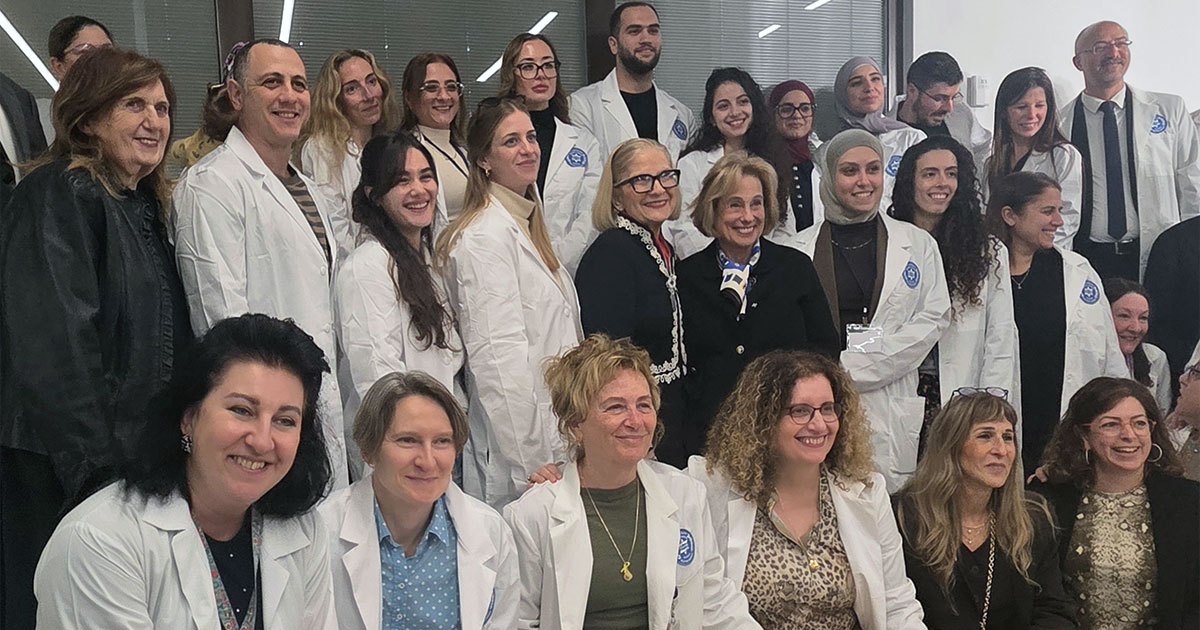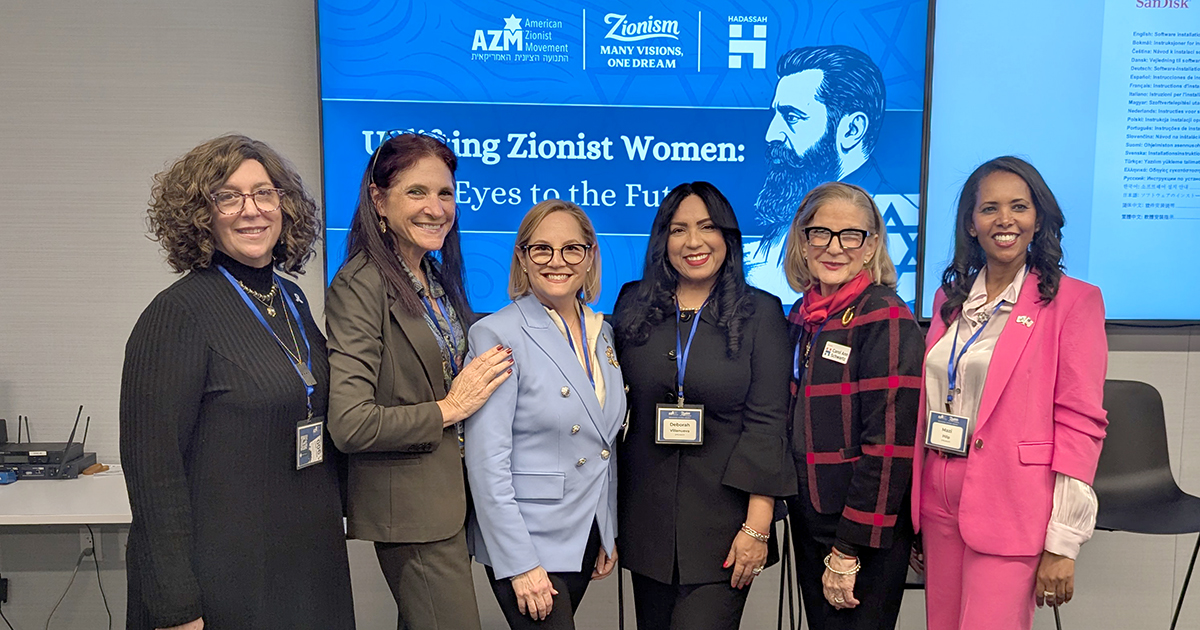By Lonye Rasch
Delivering Hope and Quality of Life to Women During Childbearing Years and Beyond
Israel has long been a leader in helping women to conceive and in shepherding them through complications during pregnancy. “In vitro fertilization is a hot topic in Israel,” notes Prof. David Shveiky, director of the Division of Obstetrics and Gynecology at the Hadassah Medical Organization. About 3,000 women receive state-of-the-art infertility treatments at Hadassah each year, he reports. Cutting-edge innovations like using artificial intelligence to monitor an embryo’s growth, provide nuanced data that help the physician assess the best quality embryo to implant. These are distinctions that cannot be seen with the naked eye.
Hadassah is also good at responding quickly and effectively to complications of pregnancy, Prof. Shveiky says. Just recently, he was awoken at 3 am to help a new mother who had begun bleeding after delivering her baby. Bringing her swiftly to the angiography suite, he, in close collaboration with Prof. Allan Blum, director of interventional radiology, identified the site of the bleeding blood vessel and treated her successfully.
The Rady Mother and Child Center at Hadassah Mount Scopus, with its beautiful new facilities, has seen more than a 40 percent increase in deliveries this year, Prof. Shveiky says. “We have to keep building all the time.”
IVF and pregnancy aside, Prof. Shveiky long ago saw the need to help women beyond pregnancy. He felt that so many issues women experience in later life were not getting enough attention. His passion, therefore, has become gynecological surgery and pelvic medicine, with the goal to improve a woman’s quality of life into her later years. According to Prof. Shveiky, 13 percent of women undergo surgery for pelvic prolapse; each year, about 300 pelvic surgeries are performed at both of Hadassah’s two campuses at Ein Kerem and Mount Scopus for a total of about 600 annually. Prof. Shveiky recalls operating on one woman who had 17 children!
An eighth-generation Jerusalemite, Prof. Shveiky trained as a fellow in urogynecology and pelvic reconstructive surgery at MedStar Georgetown University/Washington Hospital in Washington, DC, where he learned to use the Da Vinci robot. At the time, it was newly approved by the US Food and Drug Administration. The Da Vinci delivers 3D high-definition views during surgery, giving the surgeon a clear view of the surgical area, which is magnified 10 times beyond what the human eye can see.
Prof. Shveiky’s research at Georgetown spanned basic science, such as tissue regeneration of the pelvic floor, to assessing the negative effect of aging on wound healing. When he returned to Hadassah, he joined forces with obstetrician/gynecologist and stem cell pioneer Prof. Benjamin Reubinoff to investigate the ability of connective tissue stem cells to promote vaginal healing. In pre-clinical studies with rats, they demonstrated that the stem cells could identify the area in need of healing and achieve healing at a rate similar to that in younger rats. “We are not far from human trials now,” Prof. Shveiky says.
The future also entails expanding Hadassah’s reach geographically. Already on June 14, Hadassah opened a medical facility in Beit Shemesh, Israel’s fastest growing city, located 22 miles from Jerusalem. The services offered at the new facility will become available in stages, with gynecological surgery being one of the initial offerings. Later, a women’s center will be added that will comprise all subspecialities of OB/GYN, such as high-risk pregnancy, urogynecology and gynecologic oncology, as well as minimally invasive procedures such as hysteroscopies.



.svg)





